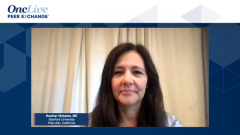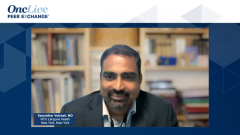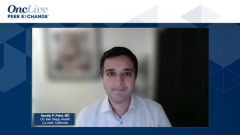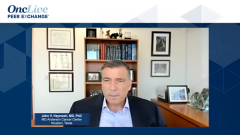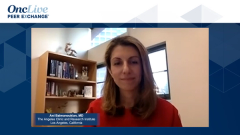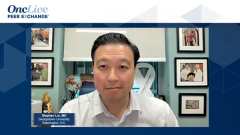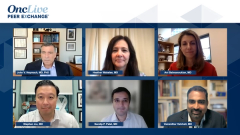
Treatment Options for Limited-Stage SCLC
John V. Heymach, MD, PhD, provides an overview of small cell lung cancer (SCLC), and Ani Balmanoukian, MD, reviews available treatment options for limited-stage disease.
Episodes in this series

John V. Heymach, MD, PhD: I’d like to move on to the last section and talk about a disease we’ve been working on for a long time and, until recently, without a lot of progress. But it does recently seem as if the door has been opened a bit for small cell. Everybody is familiar with the fact that small cell is the most aggressive subtype of lung cancer. Nowadays, it’s about 15% of total lung cancer cases. It used to be a higher percentage, obviously associated with smoking. We think about it mainly as limited stage and extensive stage, whether it can be encompassed with radiation or not. Because it’s divided into those 2 ways, it makes it simpler in terms of the clinical study design. Ani, do you want to talk about what the treatment options are if somebody comes to your clinic with limited-stage small cell lung cancer?
Ani Balmanoukian, MD: Yes. The treatment for limited-stage small cell lung cancer hasn’t changed much over the last number of years that we’ve been treating small cell lung cancer. It is still predominantly a combination of chemotherapy and thoracic radiation. That’s still pretty standard. Thankfully, there are some trials looking at different options and incorporating immunotherapy, just as we do for the extensive stage.
In the limited-stage small cell setting, we have at least 3 trials trying to use immunotherapy. There’s the ADRIATIC study, which is randomizing patients after up-front chemotherapy radiation to receive either durvalumab vs tremelimumab plus durvalumab vs placebo. There’s also the NRG-LU005 study, which is randomizing patients to receive either chemotherapy and radiation vs chemotherapy, radiation, and atezolizumab. There’s also the KEYLYNK-001 study, which is using pembrolizumab plus chemotherapy and radiation followed by pembrolizumab plus or minus olaparib vs chemotherapy and radiation. There’s hopefully more to come in this space.
John V. Heymach, MD, PhD: As we saw in the PACIFIC study, which has transformed locally advanced non–small cell lung cancer, hopefully we see similar advances in limited-stage small cell lung cancer as well.
Transcript Edited for Clarity


